Luis Figo documentary reveals betrayal and lies behind transfer to Real Madrid that shaped modern game
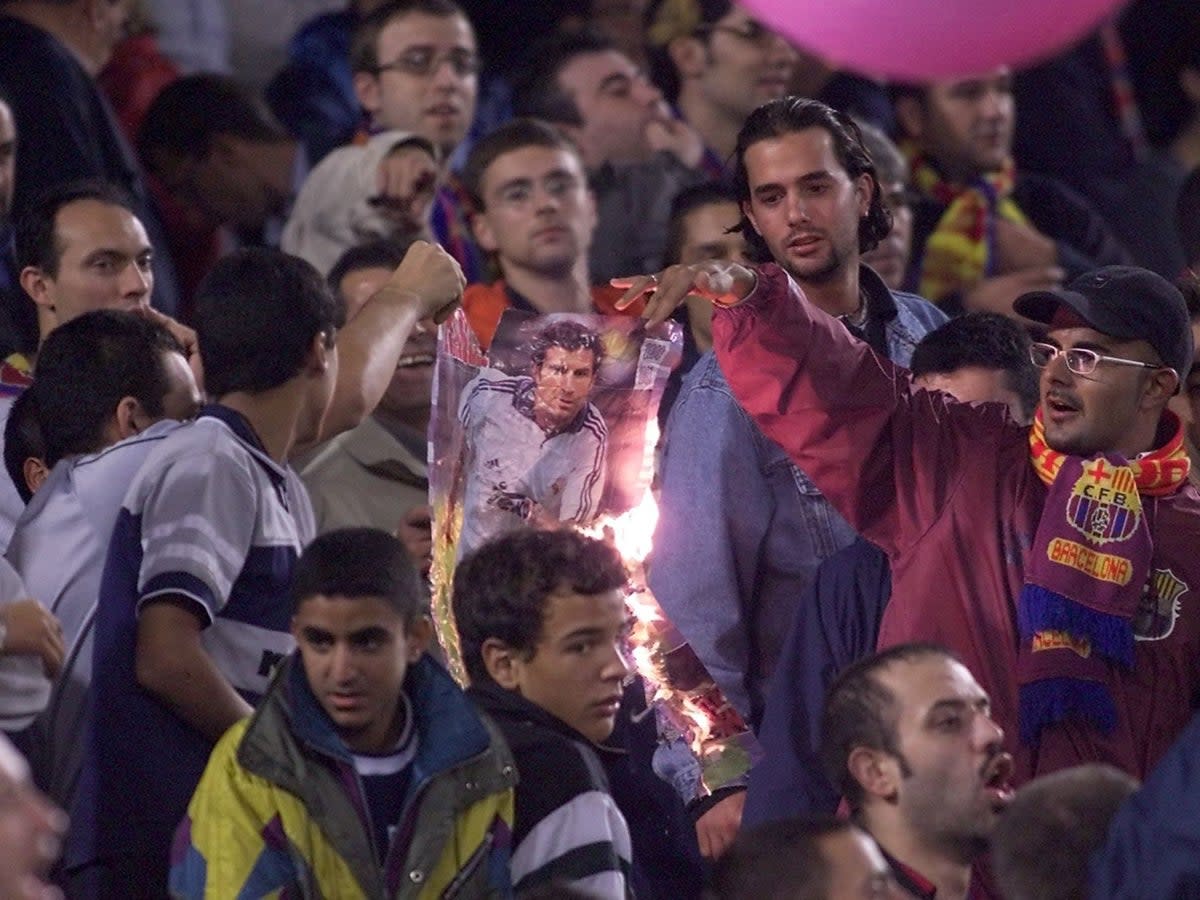
- Oops!Something went wrong.Please try again later.
- Oops!Something went wrong.Please try again later.
- Oops!Something went wrong.Please try again later.
Luis Figo’s sensational move to Real Madrid, rather suitably, begins with a fantastical story and an outright lie.
That lie is not that the Portuguese genuinely loved Barcelona, or that he never wanted to leave Camp Nou. Both of those statements were actually true right up to the day Figo was supposed to leave for Real Madrid, as a brilliant new Netflix documentary shows with some remarkable details that would be tantamount to spoilers.
The lie was actually uttered to Florentino Perez himself.
The industrialist had summoned Paolo Futre – a former Portuguese star and close friend of Figo – in early 2000 to tell him that he planned to try and sign his compatriot as part of an audacious Real Madrid presidential campaign. Perez insisted he could make it happen due to the release clause in Figo’s contract that would become notorious.
Futre calls the player’s agent, Jose Veiga, right in front of Perez only for the representative to immediately hang up because the idea was so preposterous. Futre was shocked, and now possibly humiliated, but his mind was whirring. Thinking on how Perez was capable of putting up €50m to make the transfer happen, he realised the billionaire could pay even more. So, Futre pretended that Veiga was still on the line and conducted a “negotiation” about commission.
“Those 30 to 40 seconds when I was pretending to talk to Jose were key to the whole operation,” Futre says in The Figo Affair, an often jaw-dropping documentary by David Tryhorn, Ben Nicholas and Pitch International that is released on Thursday.
So, a bluff that Perez fell for actually led to the industrialist playing one of the greatest poker hands in football history, and consequently changing the entire game.
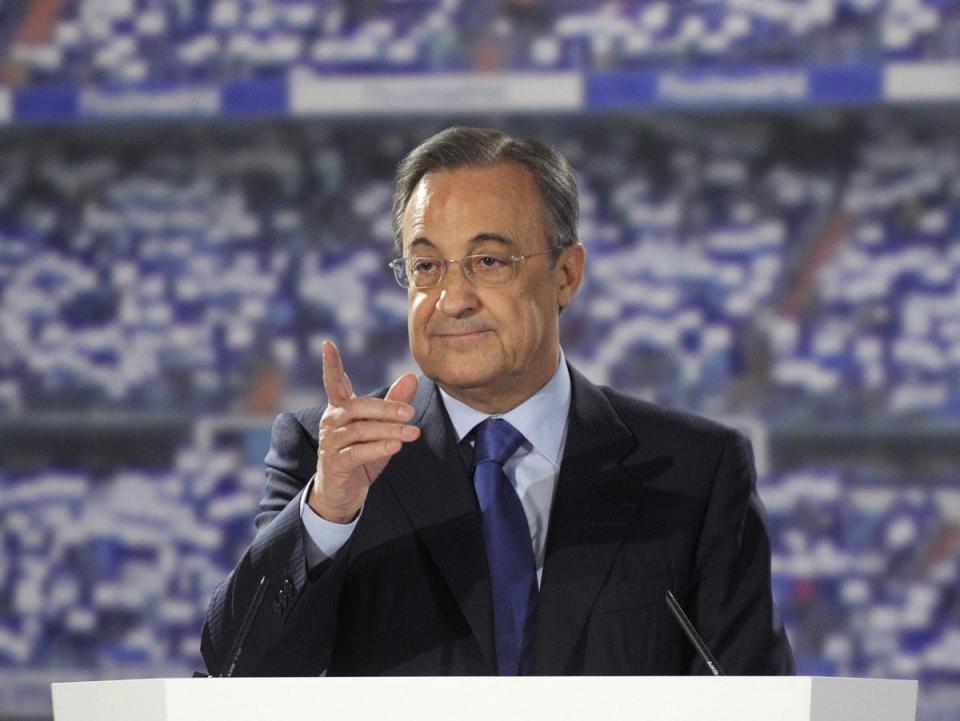
The story between those two points, however, has more twists, turns, feints and deceptive moves than a coruscating Figo run.
An added joy of the documentary is that the footage reminds just how luscious those dribbles were, but the film's real quality is in the thriller element of the story. It is at once a football documentary, suspenseful drama and homage to Rashomon. Every possible view is offered because everyone relevant is interviewed, from Figo to Pep Guardiola to Perez. That leads to some incredible scenes and lines. There is the image of Futre and Veiga sweltering on a Sardinian beach in their suits as they try to convince an obstinate Figo to go, or else they will be personally liable to pay Perez €30m. “Never,” he responds.
There is the claim that Figo told Joan Gaspart, on the night of his Barcelona presidential victory, that he had two private planes booked – one to Barcelona and one to Madrid – and which one he was on depended on what the Catalan official said next. That account is then described as a “lie”, and it’s one of many times that word is uttered in the documentary. Gaspart himself talks of “betrayal”, which is among the more charitable terms uttered on the night Figo finally returned to Camp Nou for a 2-0 defeat in November 2000. It’s a wonder he took to the field at all. The scenes from that night are far more intimidating than you remember them. In the middle of it all, there’s the image of Guardiola in a bucket hat long before he went to Manchester.
Figo himself is meanwhile portrayed as a money-hungry mercenary, just as Barcelona fans claimed, but also as a justifiably-aggrieved star, as well as an unfortunate victim of circumstance.
“It all started because I was p****d off,” he says of the Camp Nou board. “What I wanted was to play football in a place where I’d be appreciated.” The sight of Figo then standing stoney-faced beside a “radiant” Perez at his own official presentation is something else. The documentary is full of this.
As those images play, Figo offers a rather implausible explanation. “I wasn’t in the right frame of mind to express my happiness,” he says now. “I was there, but I wasn’t there.”
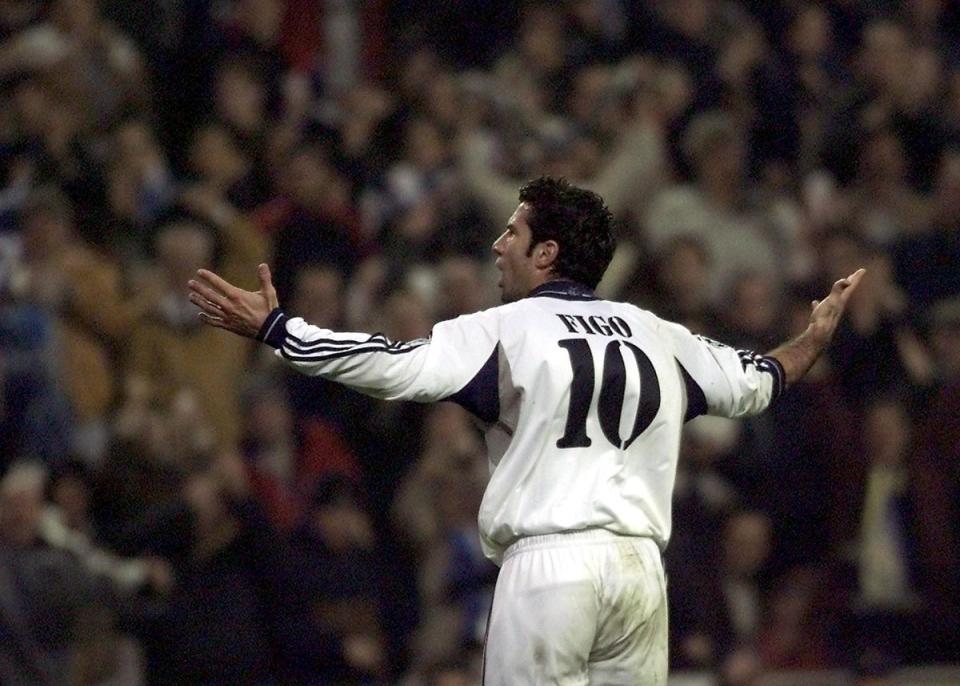
If these read like spoilers, they are really tasters of the many details in the documentary that will make you raise your eyebrows. This is one of those films where, even knowing everything going in, you have to watch it to try to figure out what you actually believe about it and why. There is so much more to the story than just a world star going from Barcelona to Madrid at the peak of their career.
Did Figo engineer this great “betrayal” or was he pressured into a move against his will? Did he just want money, or was it glory and appreciation?
On that, just as important as what everyone says is what it says about the game.
The documentary mostly paints a picture of a different football world, and it is symbolic that the move took place in the first summer of the 21st century. Figo was very much a 20th-century player, and really one of the last stars of the era before Cristiano Ronaldo and Leo Messi. In light of that duo’s feats and records, it is remarkable to think that Figo never actually scored more than nine goals in a single league season for Barcelona. That’s what all the fuss was about? Well, yes, and the documentary reminds us why. He would have been ideal for the modern game.
Such goal returns aren’t a reflection of a lesser quality, but a different sport, where there was much less concentration of talent. It was a more balanced game. That is shown by how one of Figo’s great Barcelona moments wasn’t any Champions League winner against AC Milan but a comeback performance in the Copa del Rey final against Real Betis. And it meant just as much. The wins and trophies didn’t come as easily to the big clubs back then. Such mega-transfers didn’t come too easily either. This put them on a different level.
The machinations behind the move, the “dirty tricks” and forward thinking that Perez displayed, are as interesting as anything that happened on the pitch. After watching this, you probably won’t find a fanciful detail from any summer transfer saga unbelievable ever again. Some of this is incredible.
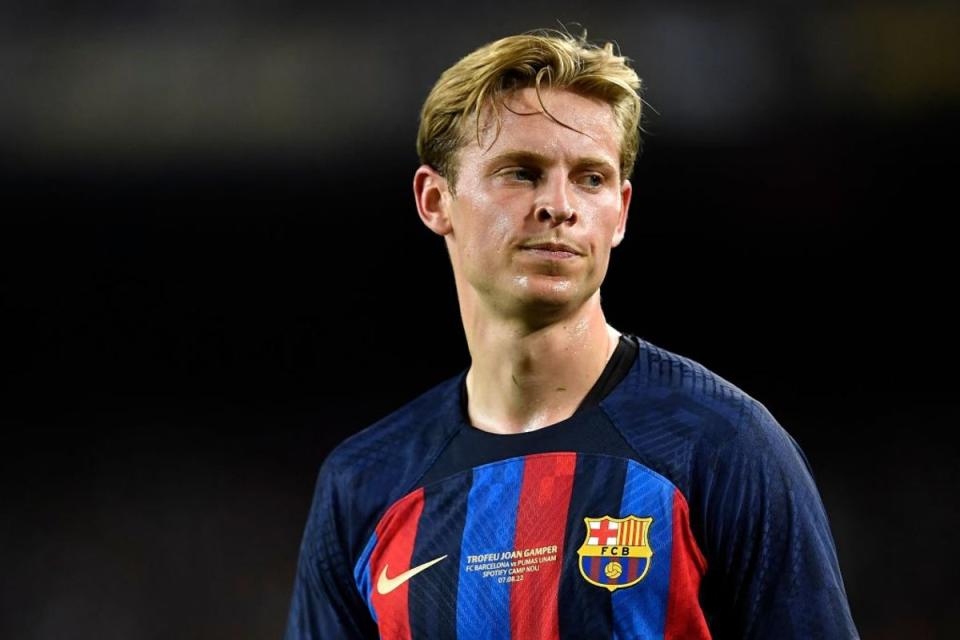
There is also resonance with a transfer of today. In one 3am call from a Lisbon hotel room, after Perez, Futre and Veiga have finally convinced Figo, the entire thing almost collapses. That is because the player’s wife, Helene, flat-out refuses to leave her Barcelona home. Many sources now insist there is similar with Frenkie de Jong’s girlfriend.
This points to the true relevance of this story, though. It is not just what it reflects of today’s game, but how it shaped it. The first major football move of the 21st century influenced the entire modern game.
It is remarkable to think now that the move partly happened because Barcelona basically gambled that nobody would be mad enough to pay a release clause. It just didn’t happen. It happens a lot now, because the Figo transfer made release clauses so routine. Barcelona suffered the same with Neymar 17 years later, a defeat that had them offering greater consideration to the Super League.
That project is of course referenced at the end, for one key reason. While Gaspart laments that he has gone down as one of “worst presidents in Barca history”, he points to how Perez is “still there”. This story was not just the making of the Madrid president, after all, but the making of the modern Real Madrid. There are few documents that so astutely articulate what the club is about as this film. “There are two ways to win,” Perez says at one point. “In small letters and capital letters. I want to win in capital letters, like Madrid always should.” Joan Laporta might well nod along if he happens to watch it this summer.
Jorge Valdano goes further, when trying to explain the essence of Madrid. “They have no cultural, social or political identity," he says, "so they have to win.” Futre meanwhile talks of how money is all that matters, as the emotional reactions of the Barca fans show what the game is really about. That pain is all the more pointed in the context of 202’s developments. None of it would have been possible without this. Barcelona are essentially following a modern form of Perez’s Galactico model.
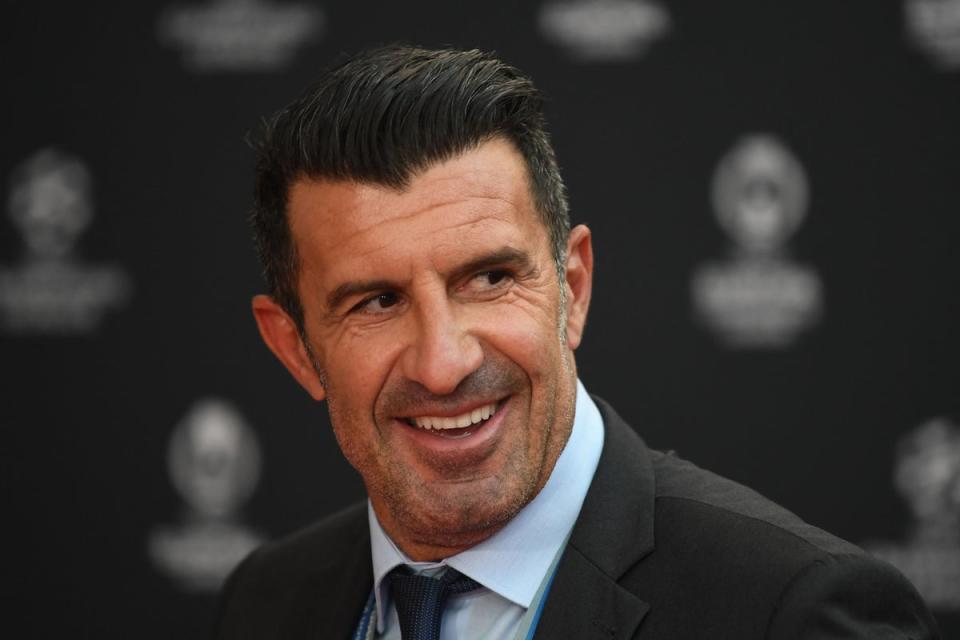
“The world of football changed, without a shadow of a doubt,” the Real Madrid president explains, before recounting his current relationship with Figo. “Every time I see him, I say: ‘It started with you.’”
There’s another line from Perez that stays with you, when everyone is asked who is actually telling the truth in all this. “Without any question, me! I’m the protagonist!”
After such claims, and so many amazing details, does The Figo Affair actually arrive at the truth?
That isn’t quite the point, since it depends on your perspective. A key perspective of the film is the machinations that make the modern game.
And in days of so much “approved content”, this is what a football documentary should be. It doesn’t necessarily tell a story of what the game should be.

